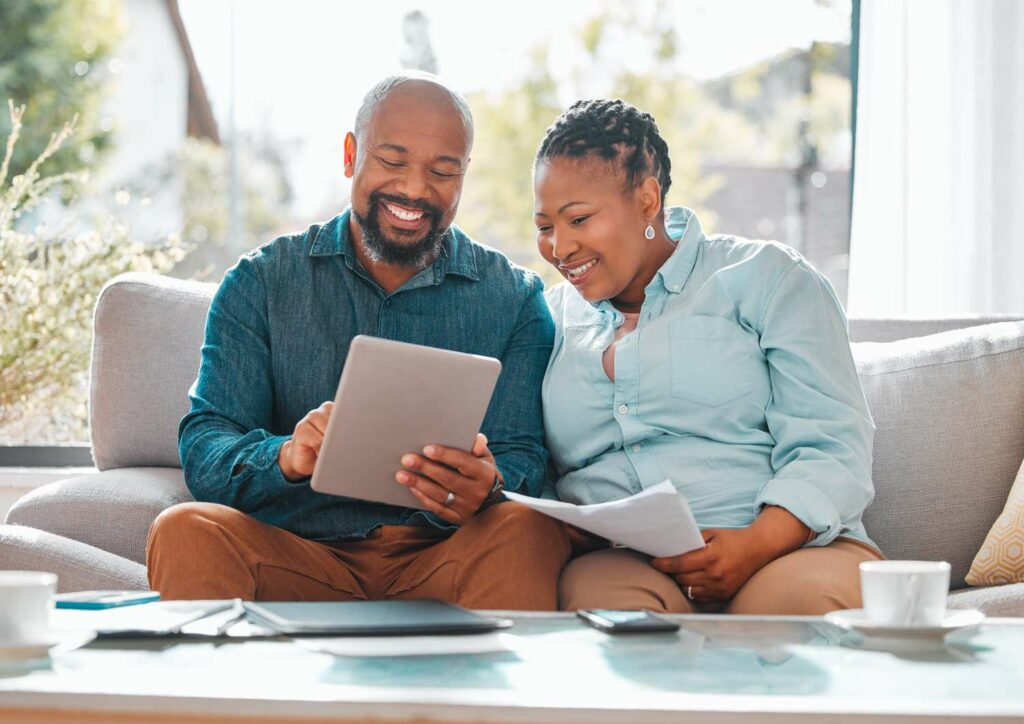Ever find yourself wondering if you’re truly prepared to take the plunge into a serious relationship? You’re not alone. It’s a question that haunts many, often leading to a whirlwind of confusion and self-doubt. But don’t fret, we’re here to help you navigate these murky waters.
In the complex world of dating and relationships, understanding your readiness for commitment is crucial. It’s about knowing what you want, understanding your feelings, and more importantly, being prepared to meet someone else’s needs.
In this article, we’ll decode the 15 signs that you are ready for a serious relationship and suggest that you might just be ready to ditch the dating game and settle into a serious relationship. So buckle up, it’s time to embark on a journey of self-discovery.
Understanding Readiness for a Serious Relationship

Transitioning from casual dating to a serious relationship isn’t a move to make lightly. It’s pivotal to scrutinize your motivations, desires, and readiness. Further, self-awareness and the impact of past relationships remain two key elements in this journey.
The Importance of Self-Awareness
Self-awareness, as in any life aspect, plays a crucial role when considering stepping into a serious relationship. It involves recognizing your personal traits, understanding your core values, and being honest about your capabilities and expectations. By practicing introspection, you gain insight into your strengths and weaknesses, likes and dislikes, and most importantly, your readiness to commit to someone else.
Take, for instance, understanding emotional boundaries. If you feel incapable of maintaining them, it’s a signal that you might not be ready for a serious relationship. Or, you notice that you greatly value independence. That points to the need for a partner who understands and respects your need for space. Self-awareness like this equips you with the tools needed to sustain a healthy relationship.
Impact of Past Relationships
Past relationships can leave a deep imprint, affecting how you approach future ones. It’s essential to analyze and understand these impacts. Say, lingering resentments from previous relationships could lead to unjustified suspicions in your new one. On the other hand, lessons learned from past experiences offer useful wisdom for navigating future romantic affairs.
For example, reflecting on why your past relationships ended aids in identifying patterns. Have you consistently been with partners who weren’t trustworthy? It might imply that you need to rethink your criteria for choosing partners. Past relationships serve as a mirror, reflecting back the choices you’ve made and the lessons you’ve learned, both of which shape your readiness for a serious relationship.
Emotional Stability: A Key Indicator

Being in a healthy emotional state is crucial when considering a serious relationship. Emotional stability stands as a primary marker, and it’s understood through two clear visors.
Connection Between Emotional Health and Relationship Success
In the context of relationships, emotional health is a critical determinant of success. A study from the American Psychological Association affirms that individuals who possess a balanced emotional state demonstrate resilience in relationships. This resilience, for example, manifests as the ability to handle conflicts, navigate disagreements, and show empathy. The same study showed that those in tune with their emotions are better positioned to offer support and understanding to their partners. Additionally, emotional wellbeing fosters improved communication, trust, and satisfaction in a relationship.
To put it simply, when you’re emotionally healthy, you’re more likely to contribute positively to a relationship. Thus, emotional health positively affects relationship longevity and success.
| Emotional Health | Relationship Impact |
|---|---|
| Resilience to conflicts | Improved conflict resolution |
| Greater empathy | Enhanced understanding and support |
| Open Communication | Increased trust and satisfaction |
How to Assess Your Emotional Readiness
Before delving into a committed relationship, it’s pertinent to assess emotional readiness. Understanding your emotional stability might seem challenging, it can be accomplished through introspection, self-reflection, and by seeking external assistance if needed.
First, scrutinise past relationships. Identify recurring trends such as conflict resolution approaches. You might also seek professional help such as a psychologist or a relationship counselor who possess the skills to help you understand your emotional state.
Furthermore, you can incorporate mindfulness activities into your daily routine. Practices such as yoga and meditation have been proven by sources like Harvard Health Publishing to foster emotional stability and resilience.
Finally, clear understanding of your emotional triggers, responses and coping mechanisms also help in assessing emotional readiness.
In essence, assessing emotional readiness is a conscious effort that requires attention and introspection. But, it does pave the way for healthier and happier relationships in the long run.
Availability: More Than Just Time

In the journey towards a serious relationship, one crucial factor that defines readiness lies in your availability – and not merely in a chronological sense. Here we discuss how balancing life and recognizing emotional availability are key aspects to consider.
Balancing Life and Love
When it comes to readiness for a serious relationship, balance plays a vital role. You juggle your responsibilities, friends, career, and personal interests, while also leaving ample space for love. Healthy relationships do not demand sacrificing any part of your life. Instead, they complement your life, adding value to it. Consider for instance, you nurture your hobbies while also devoting quality time to your partner. Similarly, you commit to your career ambitions, yet ensure your love life doesn’t hover on the edge. Recognizing your ability to maintain this equilibrium signifies readiness for a serious relationship.
Recognizing Emotional Availability
Emotional availability leans far beyond being physically present. It revolves around the ability to express feelings, to empathize, and to bare your heart without fear. It allows emotional intimacy to take root, fostering stronger, deeper connections. Take the examples of sharing joy during success, offering comfort in sadness, or standing like a rock in crises. These actions embody emotional presence. Recognizing and showing emotional availability becomes paramount in setting the stage for a more profound, committed relationship. If you find yourself not only receiving but also reciprocating emotional responses, trust your readiness for a solid, meaningful relationship.
Communication Skills That Matter

Exploring your readiness for serious relationships, your communication skills play an instrumental role. Communication, more precisely open and honest communication and attentive listening, forms the cornerstone of all successful relationships.
Importance of Open and Honest Communication
Open and honest communication sits at the heart of enduring relationships. It’s not merely about expressing your feelings or thoughts, but also being transparent about your desires, expectations, and fear. Sound communication eliminates guesswork, demystifies intentions, and significantly reduces misunderstanding – ensuring both partners feel understood, respected, and valued. For instance, in a situation where one partner hopes for exclusivity in the relationship while the other looks for a more open arrangement, open communication can prevent disappointment and heartache.
Note, honesty isn’t just about telling the truth, but also about being true to yourself. There’s no point in agreeing with your partner if inside, you’re feeling conflicted. It’s about embracing that courage to convey your viewpoint respectfully, even when it differs from theirs.
Listening: A Crucial Skill for Successful Relationships
Precise listening forms not just an essential part of communication, but also a pillar of successful relationships just like that you can check the signs of fulfilling the relationship . It’s easy to get lost in crafting your response while ignoring what your partner’s saying. Real listening, however, (the one that goes beyond hearing), means absorbing, processing, and responding to your partner’s words and emotions. For example, if your partner expresses dissatisfaction with the amount of time spent together, a good listener won’t merely present justifications. Instead, they’ll acknowledge their partner’s feelings, understand the concern, and propose a solution.
Remember, listening isn’t about winning arguments. It’s about understanding perspectives you normally wouldn’t, allowing you to bond more closely and foster a loving relationship. These two crucial skills, open communication, and effective listening, significantly determine whether you’re ready for a serious relationship.
Shared Values and Future Goals

Transitioning from a casual relationship to a serious one involves more than shared interests and emotional compatibility. Strong relationships thrive on shared values and aligned future goals.
Aligning Life Goals With Your Partner
Being ready for a serious relationship means having clarity about your personal goals. Yet, it’s equally important to ensure they align with your partner’s. Shared dreams and ambitions lay the foundation for long-term partnerships. For instance, both wanting to start a family or pursuing careers in the same city exemplify aligned goals. Catalog your aspirations. Discussing retirement plans, business goals, travel aspirations or home ownership plans brings clarity to long-term compatibility. Identifying common ground in such major life choices indicates readiness for a serious relationship.
The Role of Core Values in Relationships
Core values act as a relationship’s compass. They define personal outlooks on critical life aspects such as family, honesty, ambition, compassion, and much more. Similar core values promote understanding, tolerance, and mutual respect. An example would be valuing honesty and transparency as non-negotiable qualities in a partner. Another might be prioritizing family and relationships over materialistic pursuits. These shared values cultivate mutual understanding and nurtures harmony. Bearing that in mind, an alignment in values is essential, suggesting readiness for a serious relationship. Whether through deep conversations or through shared experiences, discovering shared core values paves the road towards readiness for a committed, long-term relationship.
Trust and Security

Building a serious relationship isn’t just about emotional balance and shared values, it’s also about trust and security. Here, we’ll guide you through signs of these powerful indicators of relationship readiness.
Building Trust in Relationships
Trust plays an integral part in shaping strong, lasting relationships. As you engage more seriously with your partner, it’s essential to establish a sturdy foundation of trust. There are several ways this can manifest:
- Honesty: Being truthful, even when the truth is uncomfortable, forms a solid base for trust. If you find your partner doing so, it’s a positive sign.
- Reliability: Constantly fulfilling your promises nurtures trust. Both you and your partner need to practice consistency in actions.
- Transparency: Openness about feelings, desires, and expectations helps build trust. If you observe this in your relationship, you’re on the right track.
- Empathy: Understanding your partner’s needs, and showing compassion, bolsters trust. If situations arise where you both empathize with each other, it’s a sign of growing trust.
- Respect: Mutual respect in a relationship makes you feel valued and secure. See if your partner respects your boundaries, opinions, and individuality.
- Emotionally Availability: Access to emotional support from your partner can create a sense of security. If your partner is there for you during tough times, it’s a positive indicator.
- Consistency: Regular positive behavior from your partner enhances the feeling of security. Look for patterns of dependability in your partner.
- Self-confidence: Feeling secure about yourself in the relationship indicates you’re ready for a serious commitment. If you’ve grown more self-confident with your partner over time, it signifies a healthy relationship.
Conclusion
So there you have it. You’ve taken a deep dive into the multifaceted world of serious relationships. It’s clear that readiness isn’t just about feeling love or attraction, but about being emotionally stable, balanced, and available. It’s about being able to express your feelings, empathize, and connect on a deeper level. Open communication, attentive listening, and shared values can’t be underestimated.
Trust and security are built on honesty, reliability, transparency, empathy, respect, and consistency. And let’s not forget self-confidence, which plays a crucial role in your readiness for a committed relationship. If you’re ticking off these signs, chances are you’re ready to take the leap into a serious relationship. But remember, it’s a journey, not a destination. So take your time, be true to yourself, and enjoy the ride.
Frequently Asked Questions
What does this article discuss about transitioning from casual dating to a serious relationship?
This article discusses the complexities involved transitioning from casual dating to a serious relationship, underlining the importance of self-awareness, setting emotional boundaries, and the role of past relationships in defining readiness for commitment.
Why is emotional stability important for successful relationships as per the article?
As per the article, emotional stability is crucial in a relationship as it promotes balance in one’s life and provides emotional availability for the partner. This creates a strong conducive environment for the relationship to flourish.
What is the significance of open communication in a relationship?
The article emphasizes that open and honest communication is significant in a relationship because it encourages attentive listening and shared values. This mutual respect and understanding form the backbone of a strong, committed relationship.
What factors indicate trust and security in relationships?
According to the article, indicators of trust and security in relationships include honesty, reliability, transparency, empathy, respect, emotional availability, consistency, and self-confidence, which are integral in building a strong foundation for a serious relationship.

